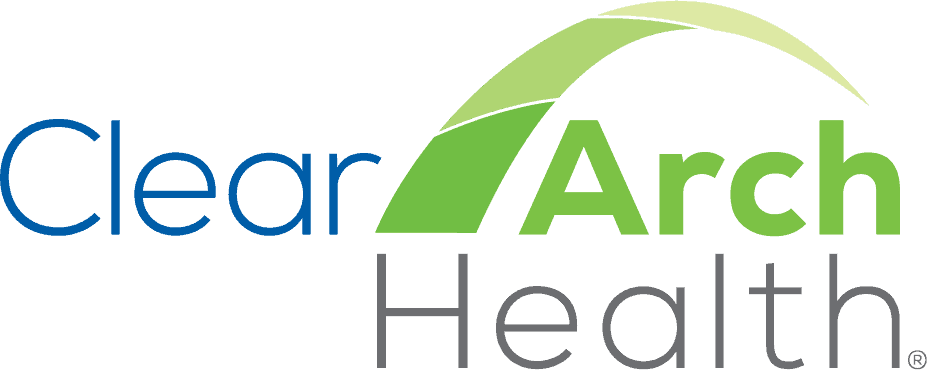|
2023 Startup Benchmarks | Rite Aid Chapter 11
October 19, 2023
|
|
|

|
|
Together with
|

|
|
|
“As an early-stage company, you might not have gold-standard outcome metrics like ROI or academic studies. But you can tell us about engagement and what clinical metrics would be important to track… Lay the pathway for how you’re going to build from engagement toward moving the needle in clinical outcomes.”
|
|
Bessemer Venture Partners VP Sofia Guerra
|
|

|
|
Rock Health’s industry analysis is a frequent feature in our top stories, but it’s tough to stay away with reports as consistently solid as last week’s 2023 Digital Health Startup Benchmarking Survey.
The survey broke down responses from 87 early-stage digital health startups to provide performance benchmarks for customer acquisition cost, lifetime value, expenses, and more [Chart: Company Breakdown by Stage / Segment].
Series B is a tipping point for growth, but not (yet) margins.
- [Chart: Revenue by Funding Stage] While Series A startups are generally building an MVP and testing product-market fit, no Series B respondents were still pre-revenue (vs. 25% of Series A). That revenue is going straight to growth, with just 12% of Series B startups reporting positive margins (a small increase from 9% of Series A).
CAC and LTV calculations are challenging for early-stage startups.
- [Chart: CAC by Customer Segment][Chart: LTV by Customer Segment] Both CAC and LTV vary widely by customer type, but both charts illustrate that “you get out what you put in.” It cost respondents an average of $58k to sign a payor, but the average lifetime value was $5.1M. That compares to a CAC of $170 and an LTV of $1.7k for consumers.
Engagement metrics are the first step to robust outcomes.
- On average, each company reported tracking two engagement outcome metrics, two clinical outcome metrics, and one economic outcome metric. “For startups balancing speed-to-outcomes and quality-of-outcomes, an ‘engagement first, clinical/economic later’ approach might help to toe the line.”
Navigating product versus marketing costs is a balancing act.
- [Chart: Company Product vs. Marketing Costs] The amount of revenue the startups devote to product versus business development and marketing evolves alongside scale. Pre-seed respondents allocated 75% of revenue to product and 11% to marketing, while Series B respondents allocated 36% of revenue to product and 22% to marketing.
The Takeaway
We’re lucky to be in a golden age of startup transparency, and between this Rock Health survey and the latest State of CareOps report, there’s no shortage of great information out there for founders to use as guideposts in their pursuit of scale.
|




|
|
Patient-Centered Design for Diabetes Care
Glooko’s recently overhauled Mobile App makes it easier than ever for diabetes patients to organize, log, visualize, and share their data. Head over to this conversation with Glooko’s product and design team for a behind-the-scenes look at how patient-centered design is improving diabetes outcomes.
|
|
Clinical Documentation Integrity For VBC
The growing use of risk-adjusted reimbursement in outpatient settings means clinical documentation needs to keep up, or health systems risk leaving revenue on the table. Check out Nuance’s new blog to learn how shifting reimbursement models make clinical documentation excellence more important than ever, and how AI can help you achieve it.
|
|
Successful RPM Through End-to-End Support
From needs assessments and program deployment to security enhancements and call center monitoring, Clear Arch Health offers fully customizable support services to help you get the most from your RPM solution.
|
|
- Rite Aid Files Chapter 11: Rite Aid filed for Chapter 11 bankruptcy and appointed corporate turnaround specialist Jeffrey Stein as its new CEO in an attempt to overcome a lengthy list of headwinds that it outlined in court documents. Those included a sub-optimal retail footprint, ongoing opioid litigation, and unfavorable terms with creditors. It’s a tough road from “corner pharmacy store” to “retail healthcare destination,” especially if you’re saddled with 1,600 opioid-related lawsuits and close to $4B in debt.
- Does AI Make You Lazy? A new study in Frontiers suggests that it’s at least tied to “social loafing.” Researchers had 42 people inspect faulty circuit boards, with one group starting from scratch and another group working alongside a robot named Panda that had already flagged most of the defects but missed five. Participants working with Panda went on to find an average of 3.3 of the missed defects, while those working independently found 4.2 – a sign that they might have been more engaged with the work.
- Nabla Teams Up With TPMG: The Permanente Medical Group is rolling out the Nabla Copilot AI clinical scribe to 10k physicians in Northern California following a successful pilot that saved users 1.5 hours a day. Nabla’s product-led growth strategy lets the Copilot speak for itself, with a public demo on the website allowing any physician to experience the sub-20 second note generation and 95% accuracy. The workforce support partnership is pretty serendipitous from a marketing perspective,arriving just as KP wraps up the largest healthcare strike ever.
- Waymark Lands $42M: Medicaid provider enablement startup Waymark landed $42M to help hone its tech and expand into new markets. Waymark enters risk-based contracts with Medicaid MCOs, then improves performance by matching primary care practices with local care teams (community workers, pharmacists, therapists, care coordinators). These teams are given a further edge in VBC through Waymark Signal, an ML risk stratification tool that incorporates data from nearby EDs and social services databases to identify “rising risk” patients.
- Healthcare Exodus Continues: The healthcare worker exodus continued throughout last year, according to the latest data from Definitive Healthcare. Over 145k providers left the industry between 2021 and 2022, with physicians accounting for almost half of all departures followed by nurse practitioners with 35k exits. Definitive reaches the logical conclusion that providers leaving in droves doesn’t help care quality or lead to fewer medical errors, and recommends that healthcare orgs mitigate the impacts of the staffing shortage by consolidating operations or investing in telehealth.
- Amazon Pharmacy Drone Delivery: Amazon Pharmacy is launching a drone delivery operation that can deliver medications to customer doorsteps in under one hour, starting with Texas A&M hometown College Station (Gig ‘Em). The service reduces the risk of late / undelivered supplies due to traffic or road conditions, and Amazon’s blog post mentioned that medications have been the single most-requested item for drone delivery. Prime Air is one of the few drone operations with FAA clearance, a logistical hurdle that not many healthcare competitors are equipped to tackle.
- Lumeon Conductor Launch: Lumeon unveiled the “next evolution” of its SaaS platform named Lumeon Conductor, a workflow automation solution geared toward health systems looking to personalize care at scale. New capabilities include: 1) tighter command center integrations with EHR workflows and automated best practice support; 2) scaled digital rounding through patient cohort identification across ambulatory and inpatient settings; 3) real-time patient communications via text or automated calls with the new Campaign Builder.
- Ventricle Health’s Seed Round: Value-based home care startup Ventricle Health landed $8M in seed funding to expand its heart failure management model across the US. Ventricle aims to give patients access to home and virtual cardiology appointments within as little as three days, while reducing patients’ annual heart failure medical costs by “at least 30-50%” through guideline-directed therapy management and reducing readmissions. The company is already supporting ACOs, primary care practices, and their payer partners in the Mid-Atlantic, Texas, Ohio, and Florida.
- care.ai + Google Cloud: care.ai is joining forces with Google Cloud to integrate generative AI functionality (including the recently introduced Vertex Search) and business analytics (BigQuery and Looker) into its Smart Care Facility Platform. The care.ai platform uses ambient sensors spread throughout care facilities to monitor patients and their caregivers, informing clinical and operational insights around areas such as fall prevention, protocol monitoring, and workforce optimization.
- Million Hearts Model Reduces Events: When CMS began reimbursing providers for proactive cardiovascular risk assessments and preventative care, it modestly reduced CV events without increasing costs. CMS’s Million Hearts Model incentivized providers to evaluate and treat Medicare FFS beneficiaries aged 40 to 79 years. Within five years, participating patients with medium or high CVD risks had a lower probability of experiencing a first-time heart event (-0.3 pct points), as well as any CV event or CV-related death (-0.4 pct points).
- ixlayer Debuts Data Visualization Dashboard: ixlayer debuted a data visualization dashboard that enables organizations running at-home diagnostics programs to easily view insights across three modules: Operational Excellence, Customer Insights, and Engagement Optimization. The solution primarily assists health plans, retailers, and biopharma companies by allowing leadership teams to use natural language to surface visual answers to their questions around their patient populations.
|
|
Master the Art of Provider Credentialing
Crafting better patient care experiences starts with refining your operations and nurturing provider satisfaction. Dive into Medallion’s new guide to discover top strategies for effective provider communication, accelerating processes through automation, and creating adaptable workflows. Elevate your credentialing game with Medallion.
|
|
A Flexible Prescription for Nurses
connectRN was founded to give nurses “radical flexibility,” with schedules that are crafted around their lifestyles, priorities, and personal needs. Check out connectRN’s feature in Fast Company to see how the future of healthcare is being built together with nurses.
|
|
The New Standard for Prescription Safety
Synapse Medicine’s quick-deploy Prescription Assistance API and components can be up and running in less than a day and instantly connect your HCPs to real-time drug data and prescribing support. Find out how easy it can be to equip your providers with the tools they need to ensure prescription safety and precision for their patients.
|
|
|
|
|